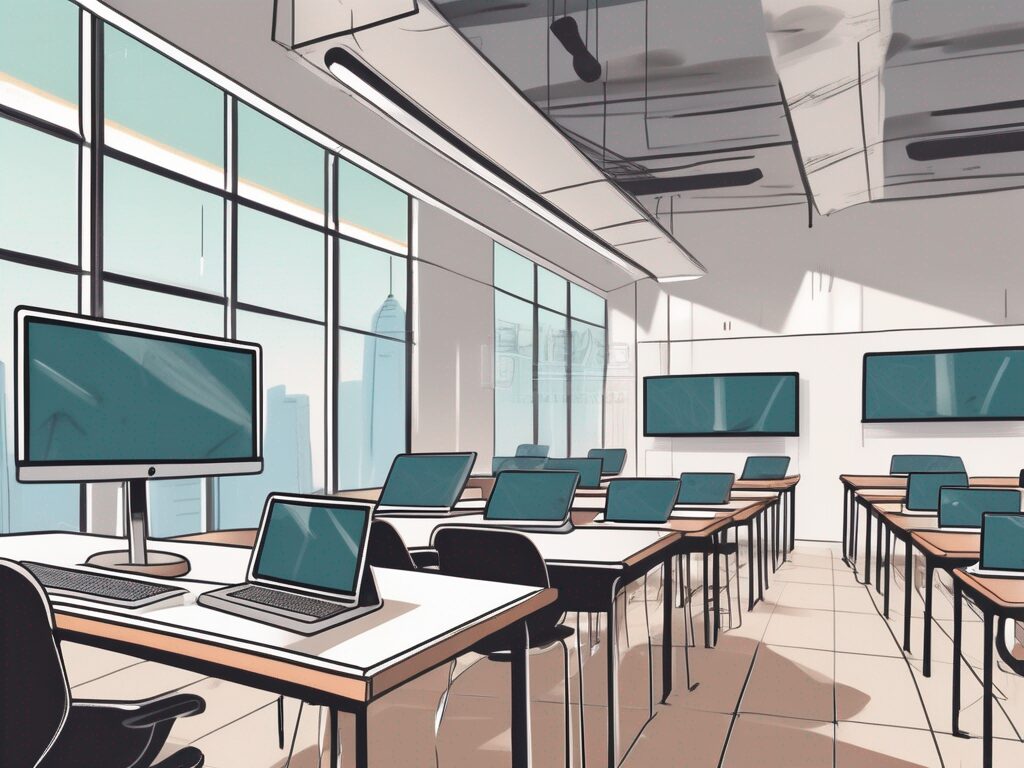The integration of technology in education is no longer a novelty but a necessity. In Hong Kong, a city renowned for its technological advancements, the education sector is not left behind. With the International Postgraduate Certificate in Education (IPGCE) programme, educators are equipped with the necessary skills to incorporate technology in their classrooms effectively. This article delves into four methods through which technology is being utilised in Hong Kong classrooms with an IPGCE.
1. Interactive Whiteboards
Interactive whiteboards have revolutionised the traditional chalk and board teaching method. These high-tech boards are a staple in Hong Kong classrooms, offering a more engaging and interactive learning experience. With an interactive whiteboard, teachers can project images, play videos, and even run educational software, thereby providing a multi-sensory learning experience.
For instance, in a geography lesson, instead of merely explaining the water cycle, a teacher can project an animated video illustrating the process. This visual representation not only makes the lesson more interesting but also aids in the comprehension and retention of information. It’s akin to watching a film at the cinema, where the visual and audio effects make the experience more immersive and memorable.
Furthermore, interactive whiteboards foster collaborative learning. Students can come up to the board and interact with the content, promoting active participation. This method is somewhat similar to group projects, where everyone has a role to play, fostering teamwork and cooperation.
2. Online Learning Platforms
Online learning platforms have become increasingly popular in Hong Kong classrooms. These platforms provide a plethora of resources, including e-books, online quizzes, and interactive games, which can be accessed anytime, anywhere. This method of learning is akin to having a library at one’s fingertips, offering convenience and flexibility.
Moreover, online learning platforms allow for personalised learning. Teachers can assign tasks based on each student’s learning pace and ability, ensuring that no one is left behind. It’s like having a personal tutor for each student, catering to their individual needs.
Online learning platforms also provide instant feedback, enabling students to identify their strengths and areas for improvement. This immediate response is similar to playing a video game, where players know right away whether they’ve completed a task successfully or not, providing motivation to improve.
3. Virtual Reality (VR) in Education
Virtual reality (VR) is a game-changer in the education sector. With VR, students in Hong Kong classrooms can go on virtual field trips, explore the human anatomy in 3D, or even walk on the moon, all without leaving their classrooms. It’s like having a magic carpet that can transport you to any place, real or imagined, at any time.
VR provides an immersive learning experience, making abstract concepts tangible and complex subjects easier to understand. For example, in a history lesson about ancient Egypt, instead of reading about the pyramids, students can virtually explore them, making the learning experience more engaging and memorable. It’s akin to time travel, offering a first-hand experience of historical events and places.
Moreover, VR fosters empathy and global awareness. Students can experience different cultures, environments, and situations, broadening their perspectives. It’s like travelling the world without a passport, promoting cultural understanding and empathy.
4. Artificial Intelligence (AI) in Education
Artificial Intelligence (AI) is making waves in the Hong Kong education sector. AI can automate administrative tasks, provide personalised learning, and even predict future learning patterns. It’s like having a smart assistant that can multitask efficiently, freeing up time for teachers to focus on teaching.
AI can also provide adaptive learning. Based on a student’s performance, AI can modify the content, pace, and difficulty of tasks, ensuring a tailored learning experience. It’s like having a custom-made curriculum for each student, catering to their unique learning needs.
Furthermore, AI can provide predictive analysis, identifying students at risk of falling behind and suggesting intervention strategies. This proactive approach is similar to a health check-up, where potential issues are identified and addressed early, preventing further complications.
In conclusion, technology in Hong Kong classrooms with an IPGCE is transforming the education landscape. From interactive whiteboards to AI, these methods are enhancing the learning experience, making it more engaging, personalised, and effective. As technology continues to evolve, it’s exciting to imagine what the future holds for education in Hong Kong.
Take the Next Step in Your Teaching Career with IPGCE
As technology reshapes the educational landscape in Hong Kong and beyond, the need for teachers to stay at the forefront of these changes is more important than ever. The IPGCE program is your gateway to not only mastering these technological advancements but also to significantly enhancing your qualifications, career progression, and professional network. Join a community of educators who are overcoming the barriers of stringent qualifications, isolation, and limited advancement opportunities. With the IPGCE, you’re not just adapting to global education systems, you’re leading the change with a 90% satisfaction rate among your peers. Embrace the flexibility of online study and witness the impact on your career growth, including a potential 30% salary increase. Don’t let inadequate credentials hold you back any longer. Join the UK’s #1 Teacher Training Course today and transform your professional future.

